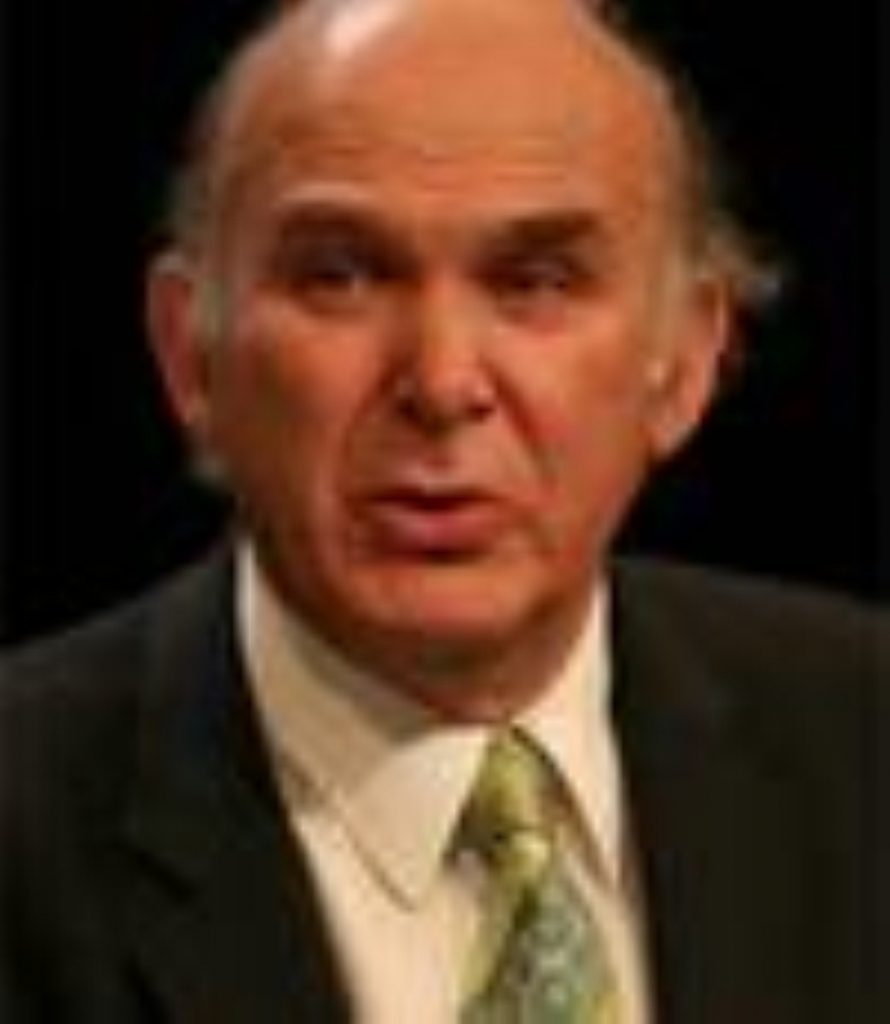Banks ‘too big to fail’
By politics.co.uk staff
The UK banking system must move away from lenders that are too big to fail, Vince Cable said yesterday.
At a conference of the think tank Reform at the London Stock Exchange, the Liberal Democrat Treasury spokesman said: “Three of the five biggest banks in the world are British-based and protected.
“The UK is too small to save the banks which are too big to fail.


“It is not too far from the truth to say we are facing ‘Reykjavik on the Thames’,” he added, referring to suggestions the City could lead the UK the way of Iceland.
“The sheer scale of banks in relation to the economy is one reason we are affected.”
John McFall MP, chairman of the Treasury committee, called for the future of banks to be split between the risky investment banks and the high street savings and loans utility banks.
“The banks are making a private profit and a social loss.
“Some are still too big to fail,” he said.
“The question is how to deal with institutions that are not too big to fail. You have to split them.”
Dr Cable explained any new model of banking would rest on the government and the Royal Bank of Scotland as the first stage, with the government facing the “tricky decision to split up RBS”.
For the UK economy to move on, Mr McFall highlighted the budget deficit.
McFall said: “The elephant in the room is the issue of budget deficit. The £37 billion recapitalisation did not help budget deficit.
“The insurance scheme may be too late. The government has to do it quick and do it big.”
Dr Cable said: “We can’t go to the IMF, as the IMF has no money, it just sits flapping its arms.
“An extreme view is we could end up in the eurozone. I don’t think that or advocate that. Eventually it could happen, but not in a crisis.
“We have no alternative but to plod on and identify the bad debt.”
“The sheer scale of deleveraging hitting the UK economy this year has a direct effect and affects the Treasury through lost revenue.”
Dr Cable added the UK was now implicitly taking the Swedish approach to banks – using nationalisation, isolating bad debts, maintaining credit flows “and preparing for the event of re-privatisation and to recoup some of the taxpayers’ investment”.
“The role of the government is to combat to severe recession and build out of recession.”
However, he explained investment in jobs was not a case of paying people to dig holes and fill them in. He also pointed out using PFI to deliver infrastructure investment was failing, with only one scheme going forward in the last six months.
“We need a mechanism for rapid good public investment screened for returns. New PFI are usually sealed from rigorous scrutiny.”
Dr Cable said: “Devaluation was a benefit. A 30 per cent devaluation, despite how it was reported, was good news for exports, tourism, but it could spin out of control.”
He also hit out at suggestions property bubbles in Spain and Ireland were due to the single currency.
“The UK outside the eurozone had a bubble too, but Germany did not.”
He was responding to suggestions from Derek Scott, managing director or Europe Economics and former adviser to Dennis Healy and Tony Blair.
“The danger for Spain and Ireland was the same as that for those sticking by the gold standard in the 1930s or the UK staying with the ERM,” he said.
“The ECB can’t manage quantitative easing. As it is debt management – but whose debt? That Germany would manage Greek debt is farcical.”
However, he did not predict any country leaving the euro, rather the crisis bring nations closer together.
Mr Scott said: “Now we need to take off the toxic assets from balances.
“I feel we are in danger of not lancing the boil in the way it should be lanced. If you delay it will get bigger.
“Real interest rates need to be much lower and there is an argument for the relaxation in monetary policy.
“The sooner there is quantitative easing, the more likely we get some recovery in credit.”
George Osborne, conservative shadow chancellor, said: “Quantitative easing should be the last resort. You cannot rule it out, but a last resort.”
He warned any use of quantitative easing would see a transfer of power to the Treasury on monetary policy.
“Darling will be given the power to pull the trigger.”
He added the flow back to the Treasury created “all sort of risks” and for institutional arrangements and stated that rules for quantitative easing must be clear.
Mr Osborne also hit out at the timing of the government’s second round of bailouts.
“The handling of the announcement was disastrous. The second round came on the same day as Royal Bank of Scotland record profit loss and within days of the lifting on the ban on short selling,” he said.
The shadow chancellor explained while the package should have created confidence, the timing made it look like a last minute fix.

